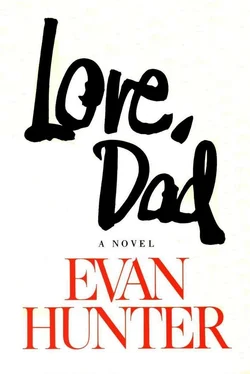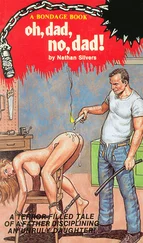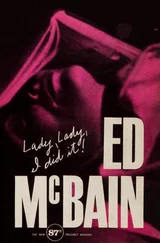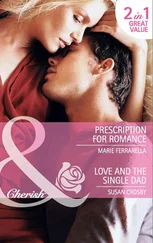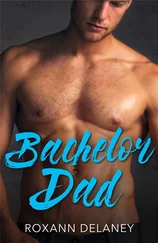“No lessons, you understand, just picking it up and strumming it, you know, like if a friend brought one over. Mostly folksongs, like that. But the important thing was that it got me away from the piano and into strings. So when I went to a music camp the summer I turned twelve — my birthday is June 6, 1944, does that date mean anything to you? Of course it does, it’s D-Day, I was born on D-Day. Anyway, that summer I went to camp, this was 1956, it was to study cello, not piano. Cello, mind you.
“But whereas I still loved the sound of it, I still do as a matter of fact, I really wasn’t devoting too much time to practicing or anything, I was more interested in boys, I guess. I’d just turned twelve, but I was pretty well developed for my age, and extremely horny. So that deep rumbling sound coming up from between my legs — the sound the cello was making, not me — was very sexual to me, and it just aggravated my horniness, and instead of practicing I went chasing around after all the boys. That’s neither here nor there, right? I mean, nothing happened to me that summer, musically or sexually. Sexually, I’d have to wait till I was seventeen. Musically, it happened two years later.”
She was a student at Fieldston-Riverdale and still taking cello lessons — this was now the fall of 1958; she was fourteen years old — when her grandmother took her to the Metropolitan Opera one night to hear Lucia di Lammermoor, which turned out to be the musical experience that changed Joanna’s entire life. When she mentioned the opera, she familiarly called it Lucia, and then saw the blank look on Jamie’s face (he truly was a musical ignoramus) and expanded it to its full, honorable and only world-famous title, drawing another blank, shrugging, and saying, “Anyway, I’d never really dug opera, and I didn’t that night, either. I mean, I frankly found it very boring until they got to the Mad Scene, do you know the opera at all? Not at all? Well, it’s really too complicated to explain, I mean the plot is really very complicated, even for an opera.
“But there’s the scene following the murder of Sir Arthur, she kills him, you see, she kills Sir Arthur whom she’s just married, and then she goes mad, and there’s this marvelous aria for coloratura soprano accompanied by flute, and when I heard that flute — oh, my God! I can’t tell you what it felt like, just hearing that sound. I took my grandmother’s glasses — I had to find out where that sound was coming from, who in the orchestra was making that sound — and I zeroed in on the flute. A lovely woman was playing it, I loved the look of her, and I loved the look of the instrument in her hands, and the way she was holding it, the way you have to hold the flute, but most of all, I loved the sound , so very different from the cello.
“It was sexy the way a dream is sexy, smooth and turning, like a dream, everything white, like daytime, like a mirror, smooth, like glass, turning, like a dream, like beach glass, do you know? Smooth and swift, like a cat, rainbow soft, like glass, like beach glass, pastels, smooth, God, I loved that sound! And I just knew , I knew right that minute, as I focused those glasses on that beautiful woman making that rapturous sound, I knew right then that what I wanted to play was the flute. I mean, I’d always known I wanted to play something , play it well, you know, not just fool around with it, but now I knew my instrument would be the flute. That was it. No further debate. The flute. Period.
“I borrowed a C-footed flute from the band room at school, and took it home to assemble the three pieces. There are three pieces, you know, it comes apart. The head-joint with the blow-hole on it — it sounds obscene, I know, but remember I was only fourteen and I didn’t know from things like giving head, dollink, or blowjobs, or other such disgusting tings, nu? The head-joint, and the middle-joint and then the tail, or the foot-joint, voilà, you got a whole fecockteh flute, am I right? Anyway, I put it all together, and I put my mouth over the blow-hole, covering about a quarter of it, and holding the flute horizontally, the way I’d seen that lady doing at the Met, and I blew down into the hole, and Jesus Christ, I made a sound!
“I was so surprised I almost wet my pants! My father was sitting in the living room, and he looked up at me, and saw the startled look on my face, and misinterpreted it for something else, because it certainly wasn’t what I was feeling — all I was feeling was shock at having produced any sound at all. My father said, ‘Such joy!’ and I looked at him, and realized he was looking at my face, studying it with a fondness and an appreciation I’d never seen before, not when I was playing piano, not when I was playing cello, but now, making a dumb ooonk sound on the flute, he gives me a look of approval like I’ve never seen before from him in my life, and he says, ‘Such joy’ again, softer this time, and that does it. Now I know that not only am I going to play the flute, I am going to be the best fucking flute player who ever lived.”
She wasn’t quite that (“I’m still not that,” she told Jamie), but she discovered in the first few months of private lessons with a teacher recommended by her Uncle Izzy that she had, well (and she told this to Jamie reluctantly and with a modesty he found both touching and endearing), well, she had what she supposed was a natural affinity for the instrument, what you might call a talent, she supposed. And she was surprised when, after having taken lessons for little more than a year, her teacher arranged a recital at Town Hall for five flutists, two men and three women, and Joanna was chosen to be one of the women. (“I was fifteen years old, not exactly what you’d call a woman, but the others really were women.”) In such fast company, Joanna was not far enough advanced to play first, but she did play third flute, and she did have several solos in a twenty-minute piece the name of which she could still recall, Boismortier’s Quintet No. 1 for five flutes. There at Town Hall, she made her next important musical decision: not only was it enough to play the flute and to play it well, it was important for her to perform before people who would hear her play and derive from her playing the same enjoyment she herself did. In short, she decided on that thrilling night that she wanted to become a professional musician.
In the summer of 1962, when Joanna was just eighteen, and shortly after she’d graduated from Fieldston-Riverdale, she went with her father to Rome. She had already applied to the Juilliard School, and had been accepted, and was looking forward to beginning her studies there in the fall. “In New York City,” she said, “anyone truly interested in becoming a professional musician — a classical musician, that is — goes either to Juilliard or Mannes. The Mannes College of Music, do you know? Both very good, but maybe Juilliard’s a bit more competitive. Anyway, that’s where I went. Juilliard, I mean. This was 1962, the fall of 1962, the school hadn’t yet moved to Lincoln Center, it was still uptown on 122nd Street, near Riverside Drive. I used to love that old building. I mean, it doesn’t compare with the facilities at Lincoln Center, I’m right there at the State Theater, you know, I drop in every now and then to say hello to Julie, he’s still teaching flute at Juilliard, he’s marvelous. I told you about him, do you remember? Julie Baker? He’s the first flutist with the Philharmonic.
“Anyway, he was teaching up there at the old Juilliard, and what I did for four years was play flute. Well, not only flute. You have to take piano as your second instrument, all students in the music department do. But flute was my major, and there was L and M, that’s literature and materials, and then orchestra — there were only two orchestras then, the Concert Orchestra and the Repertory Orchestra, but now there are four — and music history, and chamber music, if you were assigned to it, though that was mostly for string musicians, still I played a lot of chamber music at Juilliard.
Читать дальше
